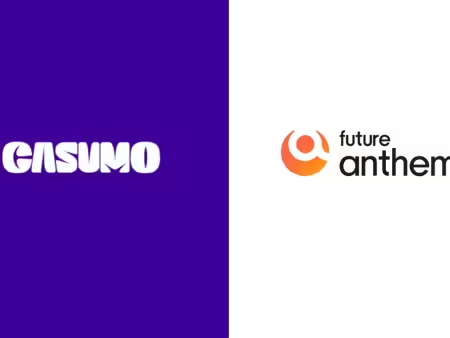Recent survey results from the American Gaming Association (AGA) reveal that casino gambling and sports betting are increasingly becoming recognized as mainstream and responsible forms of entertainment in the U.S.
Key Findings on Public Perception
One of the standout findings is that 75% of Americans now believe the gambling industry acts responsibly within the communities where it operates. Furthermore, 90% of Americans view sports betting as an acceptable entertainment choice, with 75% supporting its legalization in their home states.
“As gaming continues to reach new audiences, Americans are seeing the benefits of a legal, regulated gaming marketplace that enriches communities, prioritizes responsibility, and provides unparalleled entertainment,” stated Joe Maloney, AGA’s senior vice president of strategic communications.
Growing Confidence in Responsible Gambling
The survey indicates an increase in the perception that the gambling industry is committed to promoting responsible gambling and addressing problem gambling—up from 55% in 2023 to 65% this year. Confidence is particularly strong among industry participants: 81% of physical casino players and 88% of sports bettors now share this view, rising from 70% and 78% respectively in 2023.
The AGA attributes this increased confidence to the industry’s efforts in responsible marketing and advertising. For instance, 65% of Americans believe the industry communicates truthfully in its marketing, up from 58% last year, while 73% consider these efforts responsible.
Responsible gambling programs have also gained traction, with 66% of Americans affirming their effectiveness, an increase from last year’s 59%. Among gamblers, 79% of casino players and 85% of sports bettors agree on their efficacy.
Furthermore, there is a marked rise in exposure to responsible gambling messaging, with 46% of land-based casino players and 57% of sports bettors reporting increased awareness. Familiarity with responsible gambling resources has grown, with 76% of the public aware of at least one, rising from 65% in 2022. This familiarity is even higher among participants, reaching 92% for land-based players and 96% for sports bettors.
Engagement Reaches New Heights
The survey also signifies an unprecedented level of engagement with gambling-related entertainment. Over half of American adults (55%) reported gambling in the past year, with 28% visiting a physical casino and 21% placing sports bets. Additionally, 88% of Americans view casino gambling as an acceptable activity.
Casino visitation has hit record levels, with around 122 million American adults, or 49% of the population, visiting a casino in the last 12 months, according to the survey.
The perception of casino entertainment remains strong, with 90% of visitors considering it innovative and 89% finding it a good value compared to other entertainment options. This innovative approach has drawn younger audiences, with the average age of casino-goers decreasing from 49.6 in 2019 to 41.9 in 2024.
Economic Boon Acknowledged
A significant majority of Americans recognize gambling as a valuable contributor to the U.S. economy. The AGA survey highlights that 76% of respondents see gambling as beneficial to the economy, with over three-quarters noting its contributions to local economies, job creation, and tourism.
Notably, 85% believe casinos bring entertainment and dining options to otherwise underserved areas, while 84% agree that casinos enhance tourism and attract events. Additionally, 83% think the industry generates jobs and investments that are critical to the U.S. economy, with 80% acknowledging gambling’s role in creating well-paying jobs.
A Comprehensive National Survey
Conducted by Kantar on behalf of the AGA between July 31 and August 9, 2024, this survey involved a nationally representative sample of 2,000 registered voters aged 21 and over, focusing on perceptions of responsible gambling and the industry as a whole.
As Responsible Gaming Education Month kicks off, these findings underscore the significant strides the gaming industry is making in reshaping its reputation as a responsible, engaging, and economically supportive part of American life.

















